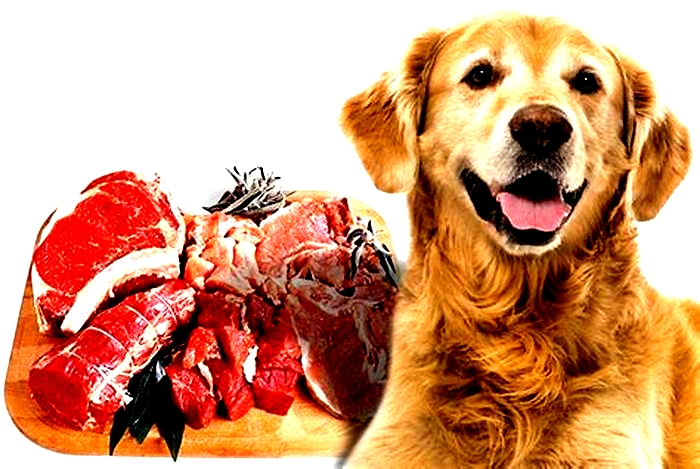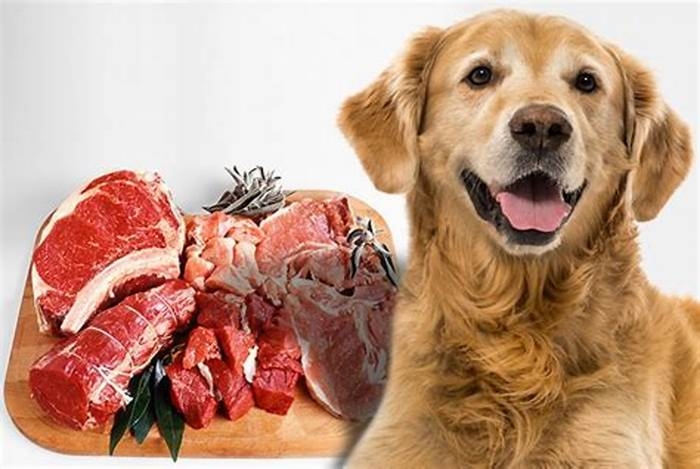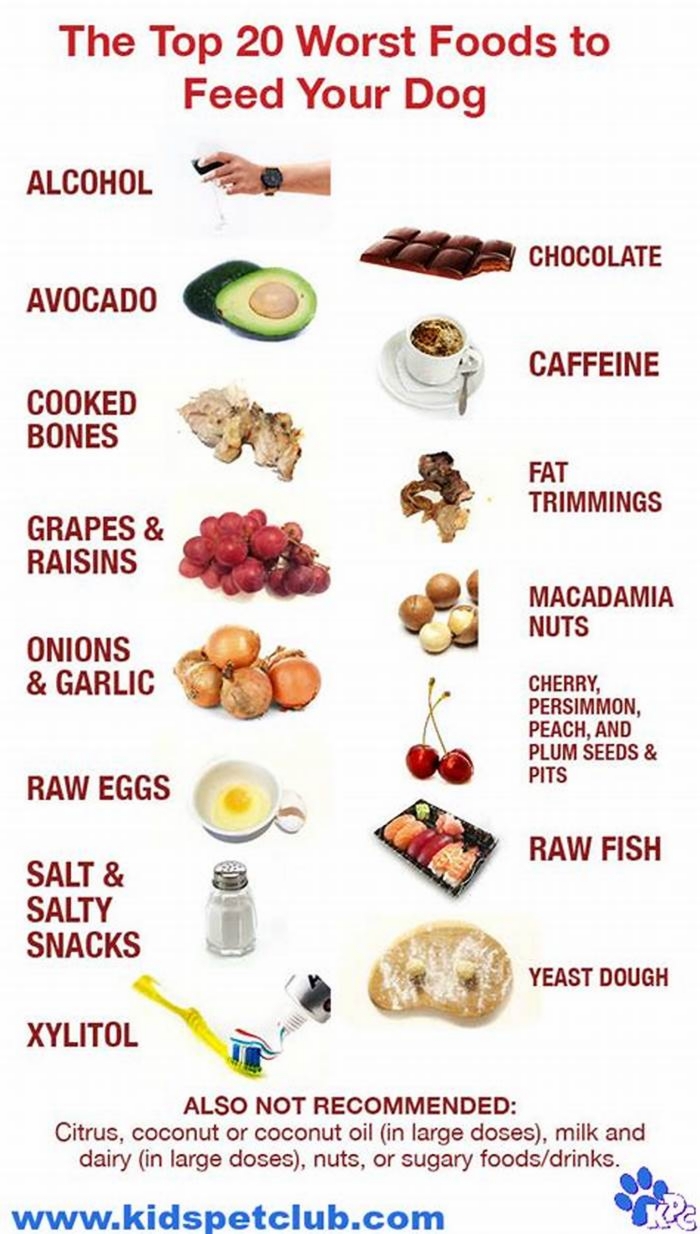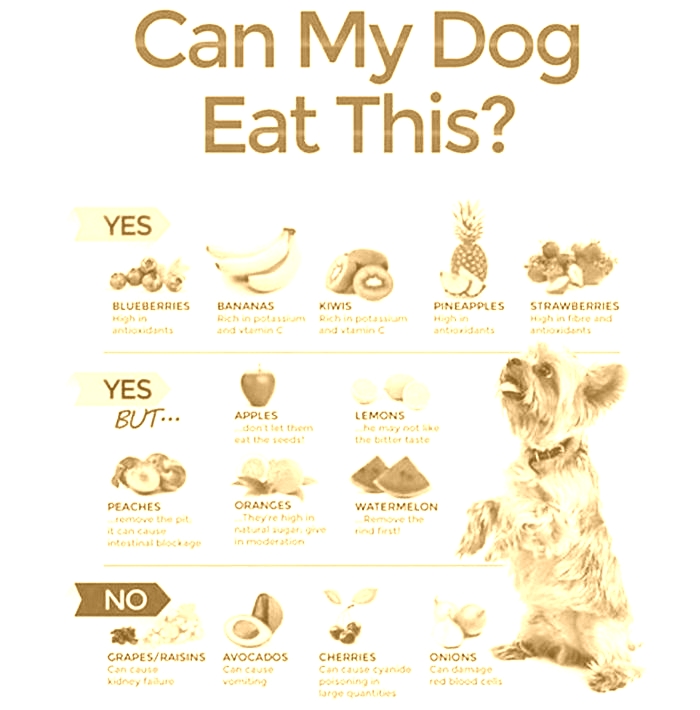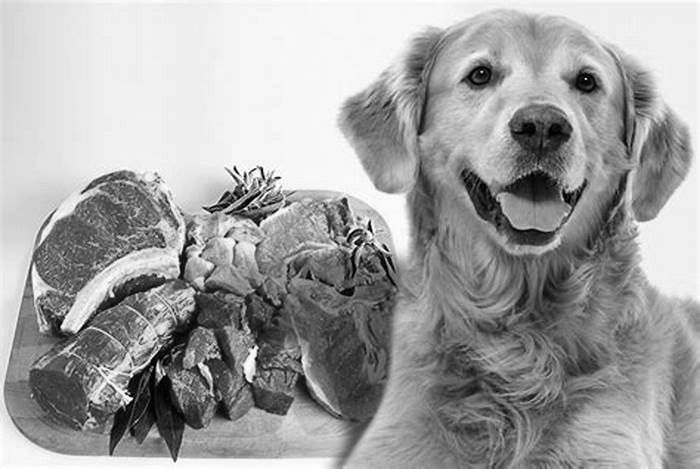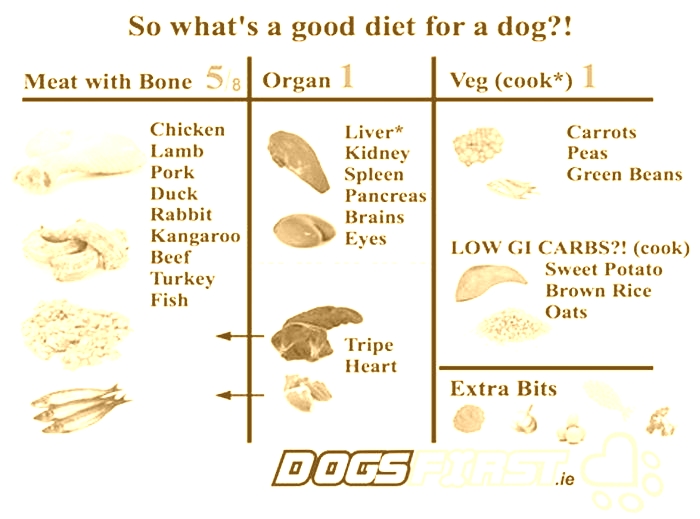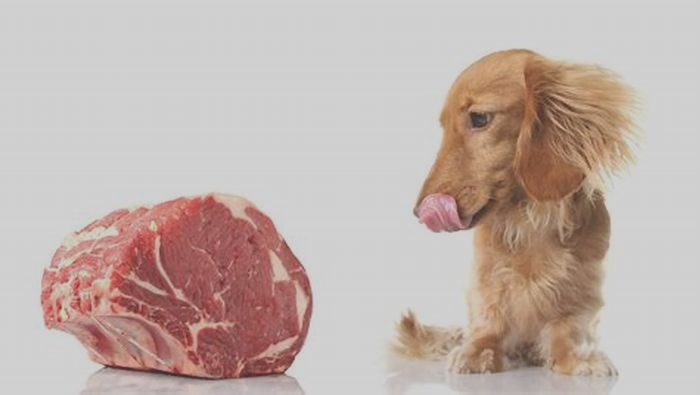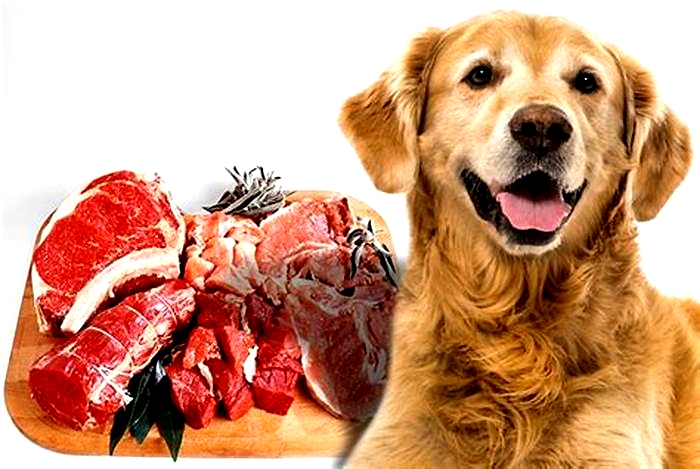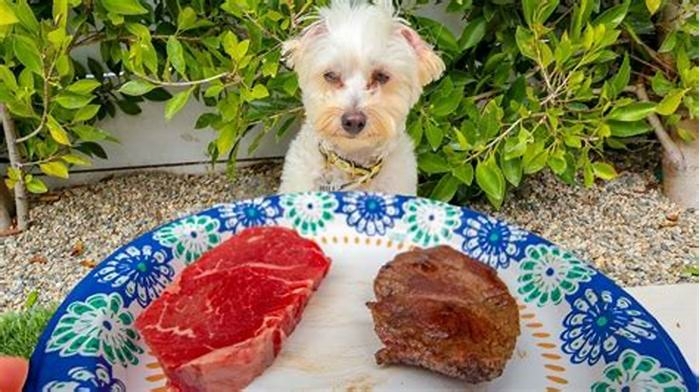What meat can dogs eat every day
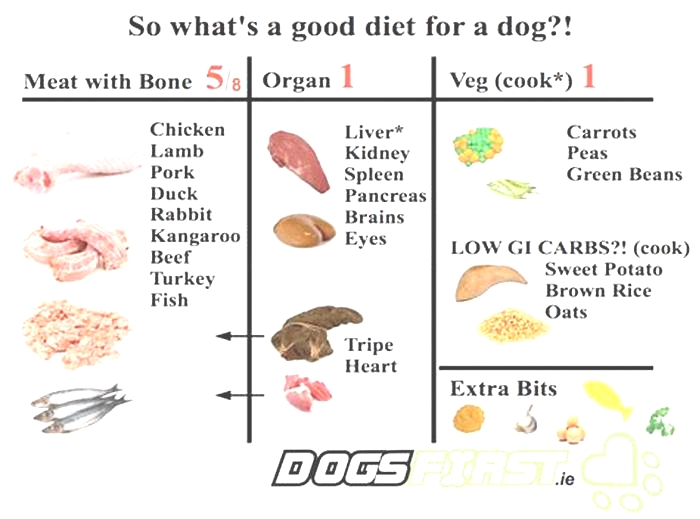
Can Dogs Eat Chicken Breast Everyday?
Chicken is a staple of Western cuisine and many people wonder whether their dogs can eat chicken breast every day.
It is after all a lean meat, rich in protein, affordable and easily available, so it sounds like a very good idea.
The short answer is yes, dogs can safely eat chicken breast, but maybe not just every day. Its not just that its boring, though it is, but it might not be such a great idea from a nutritional point of view.
In this article well be looking at the nutritional values of chicken breast, see how it compares with other types of meat and how you should serve it to your pet.
What is the nutrition in chicken breasts?
Chicken breast is a great source of protein for a dog and it provides essential amino acids, which help maintain and support healthy muscles.
Skinned chicken breast is 80% protein and only 20% fat. A regular 135 grams serving provides 238 calories.
Chicken breast is an excellent source of minerals and even some vitamins.
For instance, one regular serving of chicken breast provides 74% of the average adults daily selenium needs, and 44% of the phosphorus.
As most dogs are smaller than an adult person this means theyll get all the selenium and phosphorus they need, and this is good for their metabolism, their bones and for the immune system.
Chicken breast is low on calcium, just 1%, and iron is just 3%, so definitely not enough to meet a dogs needs.
On the plus side, chicken breast is quite rich in vitamins B3 (niacin) and B6, with 85% and 89% of an adult humans daily needs.
B vitamins are essential for good cellular health and for protecting the skin barrier.
At the same time, this type of meat provides a healthy dose of Omega 6 fatty acids, which supply your dog with energy, help him absorb vital nutrients and vitamins, and fight inflammation in the body. Oh, and they do give a nice shine to the dogs coat.
If you have a senior dog, chicken breast provides a decent amount of glucosamine, which fights arthritis and promotes strong bones.
Can dogs eat raw chicken breasts?
Most experts warn against feeding your dog raw chicken breast, or any type of raw meat for that matter. Raw meat might be infected with Salmonella or other types of bacteria, so it might make you sick.
On the other hand, proponents of the raw diet for dogs say that theres no risk if you have a reliable source of fresh meat, so its basically up to you.
Chicken breast vs chicken thighs
Many pet owners wonder whether chicken thighs are healthy for dogs. They are, after all, more affordable than chicken breast and since they come from the same animal there shouldnt be very different.
Chicken thighs are indeed safe to eat, but they have a lower protein content. While they provide the same amount of calories, chicken thighs are only 66% protein, and the rest is fat. If your dog has a problem with cholesterol you might want to avoid that. Chicken thighs are also lower in most minerals and vitamins, with the notable exception of iron, 9% of the average adults daily needs.
However, if youre thinking about slipping your dog a nice juicy chicken thigh from the family dinner, you will want to get rid of the bones. Chicken bones are not safe for dogs, either raw or cooked. Cooking makes chicken bones brittle, so they can easily splinter. Bone splinters are a major choking hazard and if they make it to the stomach, theres the risk of puncturing the stomach lining which may lead to a very nasty infection.
Chicken vs beef vs pork: what nutrients do chicken breasts not have?
Beef is also very affordable and most dog foods contain this type of meat. How does it compare to chicken? Well, chicken breast has more protein than beef (66%), although they provide roughly the same number of calories. Beef stands out as it provides more iron (12%) and covers 93% of an adults vitamin B12 daily needs. B12 supports normal brain function so it is essential for an elderly dog struggling with cognitive decline.
Pork is also widely available and has more calories than chicken breast, 297 calories for a 113 g serving, so it will fill your dogs belly better. Unfortunately, it is only 39% protein and the rest is fat. On the other hand, pork is very high in vitamin B1 (thiamine) which is essential for the good functioning of organs that require a lot of energy, such as the brain.
How much chicken breast should I feed my dog?
That depends on the size of your dog. According to experts, a dog should eat between and cup of meat protein for every 20 lbs of body weight.
Are boiled chicken breasts good for my dog?
Boiled chicken breasts are probably the healthiest option for your dog. The taste might be a bit bland for humans, but its just great to a dog.
As a matter of fact, boiled chicken breast (skinned and deboned) is the go-to remedy for a dog with an upset stomach as it is very easy to digest. If your dog has diarrhea, give him some boiled chicken breast with a bit of boiled rice for a couple of days and it will solve the problem.
Grilled chicken is also good, but you should avoid feeding your dog fried chicken on a regular basis as he doesnt need that much fat in his diet.
Can dogs eat canned chicken breast?
A dog can eat canned chicken breast, but only on occasion. If you dont have anything else available or if your dog is simply begging you for a bite of your canned chicken breast he can have some. It wont do any harm every once in a while, but definitely on a regular basis. Just check out the label on your canned meat and youll see why. Most canned foods have a high-salt content, which is not good for your pet. And theres also the danger that the product might contain seasonings hes not allowed, such as onions or garlic.
Can dogs eat frozen chicken breasts?
Freezing chicken breasts is a good way of killing almost all of the bacteria the meat might be contaminated with. Also, serving your dog frozen foods is the ultimate in convenience as you dont have to cook and theres no cleaning up required.
However, frozen food is not exactly easy on the dogs stomach as all the thawing required puts a strain on the digestive system. At the same time, pieces of frozen meat are a serious choking hazard if the dog doesnt bother to chew. On the other hand, if he does try to chew on the frozen meat he might break a bone, which would cause him a lot of misery and will cost you quite a bit in dentists fees.
If you want, you can freeze raw chicken breasts to destroy the bacteria in it, but let it on the counter to thaw for 4-5 hours before feeding it to your dog.
Can dogs eat chicken breast every day?
Technically, yes, a dog can eat chicken breast every day, but this might lead to certain nutritional deficiencies. Some people wonder whether a dog can live on chicken meat alone. Maybe he can, but he wont be a very healthy dog.
Dogs need a balanced diet and chicken breast doesnt provide that. No animal can live on one type of food alone, no matter what that food might be.
For instance, chicken breast has no fiber at all, which is definitely not good for his digestive system. Lack of fiber in the dogs diet can lead to severe constipation. A healthy dogs diet should contain around 10% fiber. The best fiber sources for dogs include broccoli, leafy greens, pumpkin, green beans, carrots, apples or berries. If youre boiling some chicken breast for your dog, throw in a couple of carrots and some green beans and hell have a more balanced meal. Plus, the sweet taste of meat will make your dog ignore the veggies in his bowl.
If you want your dog to be strong and healthy, you should feed him various types of meat one day he can have chicken, the next one a bit of beef, or maybe some salmon, etc.
Closing Thoughts:
Chicken breast is a very healthy type of meat for a dog, but that doesnt mean you should feed him just that day in, day out. Dogs need variation in their food and not only because its more fun. When your dog eats the same type of food every day, hes bound to develop some nutritional deficiencies which will eventually make him ill, even though you think hes getting prime meat every day. If your dog happens to be a very picky eater you can give him chicken breast every day, but make sure to mix it with some veggies or even some kibble to make sure he gets all the important nutrients.
Can Dogs Eat Ground Turkey Everyday? Pros and Cons Explained
Introduction
As a pet owner, its natural to want the best for your furry friend. You may be wondering if feeding your dog ground turkey every day is healthy and safe. After all, dogs need a balanced diet just like humans do.
Nutritional Value of Ground Turkey
Ground turkey can be an excellent source of protein for dogs. It contains less fat than beef or pork and has high levels of essential nutrients such as iron, zinc, and B vitamins. However, its important to understand that dogs have different nutritional requirements than humans.
Potential Risks of Feeding Dogs Ground Turkey Every Day
While ground turkey is generally considered safe for dogs to eat in moderation, feeding them too much can lead to health problems. For example, if youre not careful about removing bones from the meat before cooking, your dog could choke on them or suffer internal injuries. Additionally, large amounts of ground turkey can cause digestive issues such as diarrhea or vomiting.
The Importance of Variety in Your Dogs Diet
Just like us humans get bored with eating the same foods every day; our furry friends also crave variety in their diets. Rotating different sources of protein ensures that they receive all essential nutrients in sufficient quantities while keeping things interesting for their taste buds.
Conclusion
In conclusion Yes! Dogs can eat ground turkey every day in moderation as part of a balanced diet that includes other proteins rich food items like fish etc., but it should never become the only source of nutrition they receive daily so try mixing up their meals regularly! Also remember always consult with your veterinarian before making any drastic changes to your pups dietary routine!
Do Dogs Need Meat in Their Diets?
Whats the healthiest diet for a dog? Its a meaty subject. Is it best to buy commercial food or feed homemade? Processed or raw? Kibble or canned? And one question many dog owners ask is Do dogs need meat in their diets?
Carnivore or Omnivore?
Gray wolves, Canis lupus, are definitely carnivores or meat-eaters and are capable of consuming up to 20 pounds of meat in one meal. According to the National Wildlife Federation, wolves prefer to eat large-hoofed mammals, such as deer, elk, bison, and moose. They also hunt smaller mammals, such as beavers, rodents, and hares.
When you look at a Pomeranian or a Poodle, it may be hard to imagine, but these breeds and all dogs, Canis familiaris, are direct descendants of the gray wolf. However, as dogs became domesticated, they developed different traits of digestion and metabolism that cause many scientists to classify them as omnivores.
Omnivores eat plant and animal matter. Humans are omnivores. Dogs produce amylase in much greater quantities than wolves, enabling them to digest foods other than meat. This enzyme allows dogs to digest a diet rich in starches something wolves cant do.
Some scientists disagree and identify dogs as carnivores. Why? Because dogs have long canine teeth designed to rip and tear meat. Dogs also have shorter gastrointestinal tracts compared to other omnivores and herbivores, as reported in Breeding Business. And while dogs do produce amylase, other omnivores produce the enzyme in their saliva, while dogs do not.
Whether dogs are classified as carnivores or omnivores, I think most veterinarians would agree that over the centuries, the digestive system of dogs has adapted to allow them to eat and even to require a more complex diet than that of the wolf, says Dr. Jerry Klein, AKC chief veterinary officer.
Balanced Diets for Dogs
A balanced diet that meets the nutritional requirements of a dog is a diet that includes meat and plant foods provided the diet is made up of high-quality ingredients and includes the necessary proteins and fats.
The Merck Veterinary Manual says, In developed countries, nutritional diseases are rarely seen in dogs and cats, especially when they are fed good quality, commercial, complete and balanced diets. Nutritional problems occur most commonly when dogs and cats are fed imbalanced homemade diets. Dog or cat foods or homemade diets derived from a single food item are inadequate. For example, feeding predominantly meat, or even an exclusive hamburger and rice diet, to dogs can induce calcium deficiency and secondary hyperparathyroidism.
Dogs require certain essential amino acids in their diets, and some proteins provide more value than others, adds Dr. Klein. Meat does provide all of those amino acids, but many plant proteins do not. However, a diet consisting solely of meat products will not meet all of your dogs dietary requirements.
Is Meat Required?
Dogs can thrive without meat, but only if they are fed a properly balanced vegetarian diet. As is true with people who prefer vegetarian diets, protein or vitamin deficiency can occur in dogs who eat strictly vegetarian diets if they are not properly supplemented.
Dr. Klein gives dog owners the following advice: Feed your dog a food with high-quality ingredients. Your veterinarian can recommend a diet that best suits your dogs size, age, breed, and activity level. If you choose to purchase a natural diet for your dog, make sure its free of animal and plant byproducts and chemicals.
And if a homemade diet is your choice, work closely with your veterinarian or a veterinarian nutritionist to be sure that the recipe is comprehensive and includes all of the nutrients your dog requires to stay healthy and active.
At Wild Earth, we believe that modern dogs have evolved with us, and just like us, a dogs nutrition should also evolve to meet their changing needs in our shared world.Wild Earth is nutrition for the evolved dog. High-quality and delicious food and nutritional products that deliver uncompromising dog wellness benefitsthey just happen to be plant-based and are always cruelty-free.

